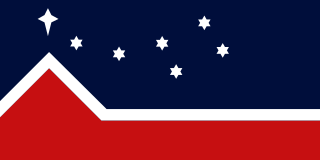The politics of Canada functions within a framework of parliamentary democracy and a federal system of parliamentary government with strong democratic traditions. Canada is a constitutional monarchy where the monarch is head of state. In practice, executive authority is entrusted to the Cabinet, a committee of ministers of the Crown chaired by the Prime Minister of Canada that act as the executive committee of the King's Privy Council for Canada and are responsible to the democratically elected House of Commons.

Ernest Preston Manning is a retired Canadian politician. He was the founder and the only leader of the Reform Party of Canada, a Canadian federal political party that evolved into the Canadian Alliance in 2000 which in turn merged with the Progressive Conservative Party to form today's Conservative Party of Canada in 2003. Manning represented the federal constituency of Calgary Southwest in the Canadian House of Commons from 1993 until his retirement in 2002. He served as leader of the Official Opposition from 1997 to 2000.
The Progressive Party of Canada, formally the National Progressive Party, was a federal-level political party in Canada in the 1920s until 1930. It was linked with the provincial United Farmers parties in several provinces, and it spawned the Progressive Party of Saskatchewan, and the Progressive Party of Manitoba, which formed the government of that province. The Progressive Party was part of the farmers' political movement that included federal and provincial Progressive and United Farmers' parties.
The Natural Law Party of Canada (NLPC) was the Canadian branch of the international Natural Law Party founded in 1992 by a group of educators, business leaders, and lawyers who practised Transcendental Meditation.

The Social Credit Party of Canada, colloquially known as the Socreds, was a populist political party in Canada that promoted social credit theories of monetary reform. It was the federal wing of the Canadian social credit movement.
The Western Canada Concept was a Western Canadian federal political party founded in 1980 to promote the separation of the provinces of Manitoba, Saskatchewan, Alberta and British Columbia, and the Yukon and Northwest Territories from Canada in order to create a new nation.
The New Reform Party of Ontario was a minor provincial political party in Ontario, Canada, that promoted a populist, fiscally conservative, socially conservative, libertarian, and localist ideology.

The Reform Party of Ontario (RPO) (PRO; French: Parti Réformiste de l'Ontario) was a minor political party in Ontario, Canada. Until the 1999 provincial election, the party ran one candidate each election in order to keep the party's name in the possession of supporters of the Reform Party of Canada.

The Western Independence Party (WIP) was a Canadian political party that advocated the separation of Western Canada from Canada to form a new country from the provinces of British Columbia, Alberta, Saskatchewan and Manitoba, and the Yukon and Northwest Territories.

The Ontario Provincial Confederation of Regions Party is a minor political party in Ontario, Canada, the provincial branch of the now-defunct Confederation of Regions Party of Canada. The party was founded in 1989, around the time the federal CoR was dissolved, and remains the last Confederation of Regions Party in Canada.

The New Democratic Party Socialist Caucus is an unofficial left-wing faction within Canada's New Democratic Party.
The Manitoba Reform Party was a right-wing political party in Manitoba, Canada in the early 1990s. It was known as the Manitoba Confederation of Regions Party (CoR) in the provincial elections of 1986, 1988 and 1990.
Canada holds elections for legislatures or governments in several jurisdictions: for the federal (national) government, provincial and territorial governments, and municipal governments. Elections are also held for self-governing First Nations and for many other public and private organizations including corporations and trade unions. Municipal elections can also be held for both upper-tier and lower-tier governments.

The 1905 Alberta general election was the first general election held in the Province of Alberta, Canada, shortly after the province entered Canadian Confederation on September 1, 1905. The election was held on November 9, 1905, to elect twenty-five members to the 1st Alberta Legislative Assembly.

The Western Block Party (WBP) was a federal political party in Canada, founded in 2005 by Doug Christie. The party was registered on December 29, 2005, and deregistered on January 31, 2014.

Alberta separatism comprises a series of 20th- and 21st-century movements advocating the secession of the province of Alberta from Canada, either by joining the United States, forming an independent nation or by creating a new union with one or more of Canada's western provinces. The main issues driving separatist sentiment have been the perceived power disparity relative to Ottawa and other provinces, historical grievances with the federal government dating back to the unrealized Province of Buffalo, a sense of distinctiveness with regards to Alberta's unique cultural and political identity, and Canadian fiscal policy, particularly as it pertains to the energy industry.
The New Brunswick Confederation of Regions Party was a political party in the Province of New Brunswick, Canada. It was the only branch of the Confederation of Regions Party of Canada to win any seats. It held official status in the Legislative Assembly between 1991 and 1995, before losing all its seats in the following election.
The Western Canada Party (WCP) is a Canadian political party that advocates the separation from Canada of the provinces of British Columbia, Alberta, Saskatchewan and Manitoba as well as the Yukon, Northwest Territories and Nunavut to form a new country as Western Canada.
The New Democratic Party is a federal political party in Canada. Widely described as social democratic, the party occupies the centre-left of the political spectrum, with a left-wing, democratic socialist faction, with the party generally sitting to the left of the Liberal Party. The party was founded in 1961 by the Co-operative Commonwealth Federation (CCF) and the Canadian Labour Congress (CLC).

The BC Refederation Party was a provincial political party in British Columbia, Canada advocating for a direct democracy and reforms to Canadian federalism. It was formed shortly after the 2000 federal election as the Western Independence Party of British Columbia with an explicit western separatist platform; it later renamed itself the Western Refederation Party of British Columbia before adopting its final name.









